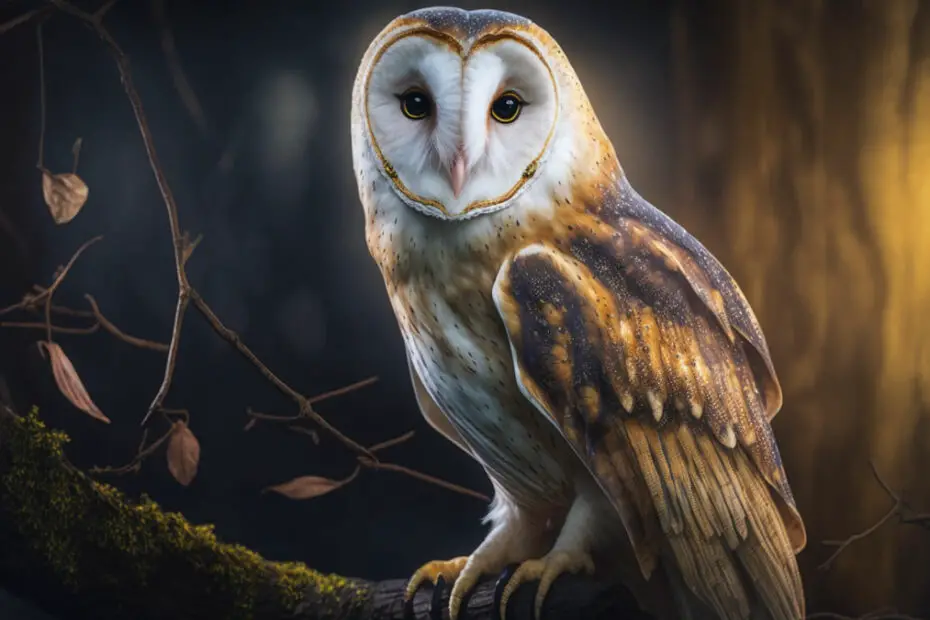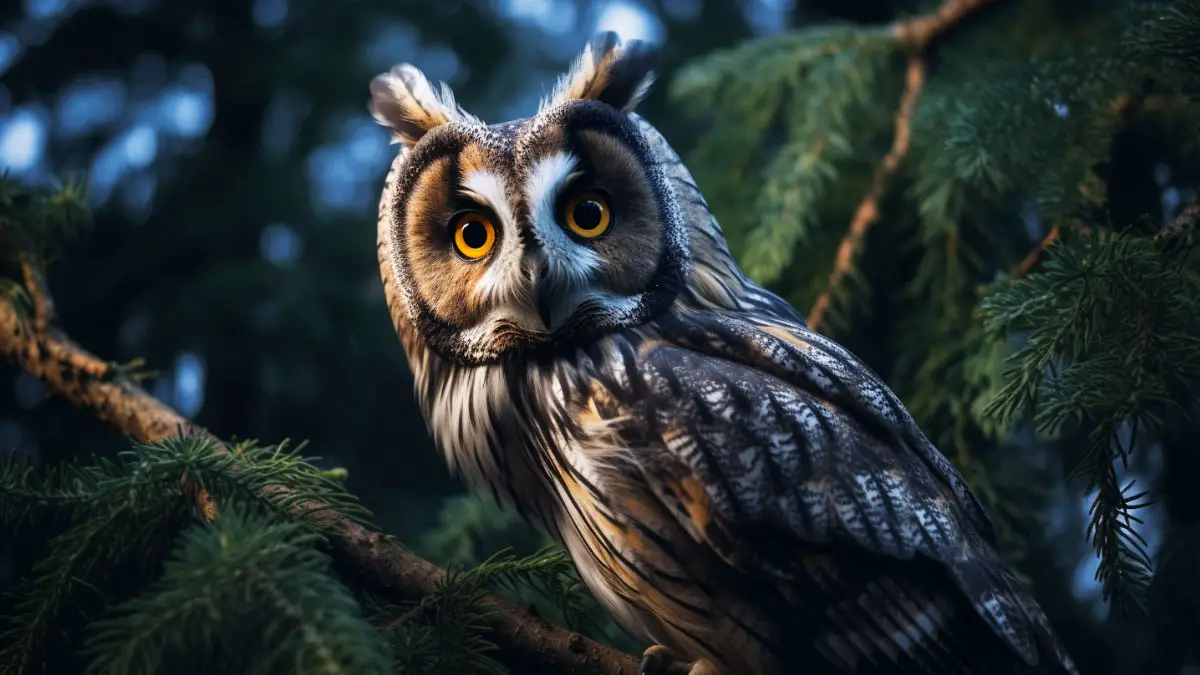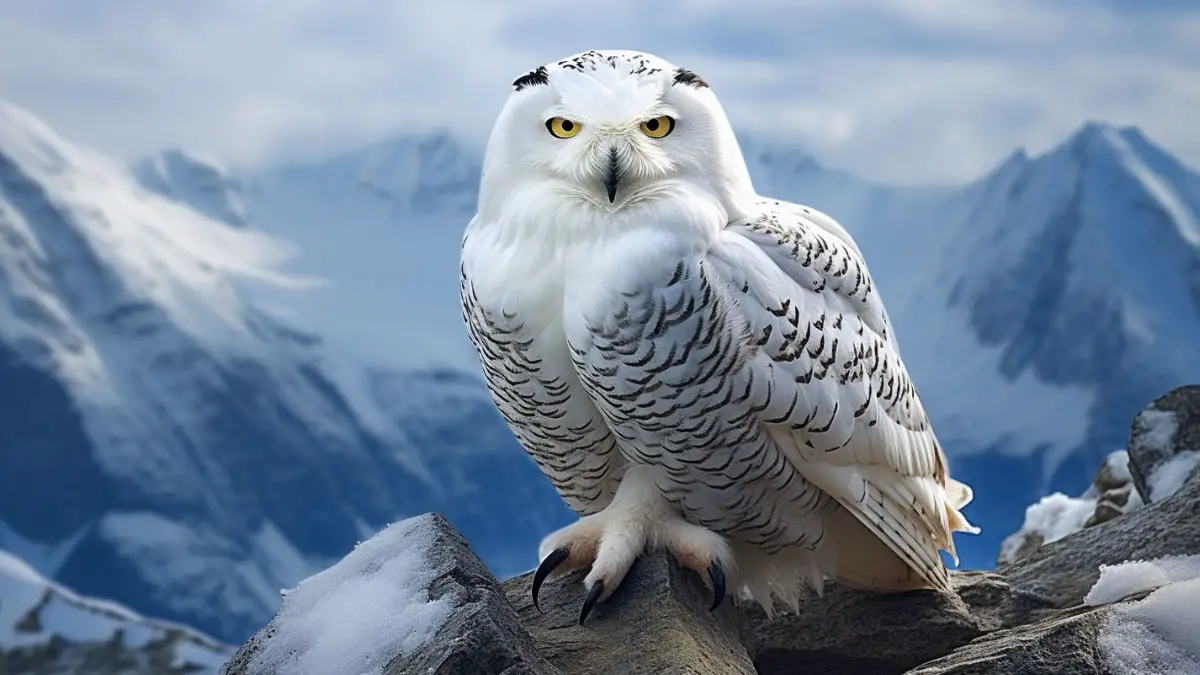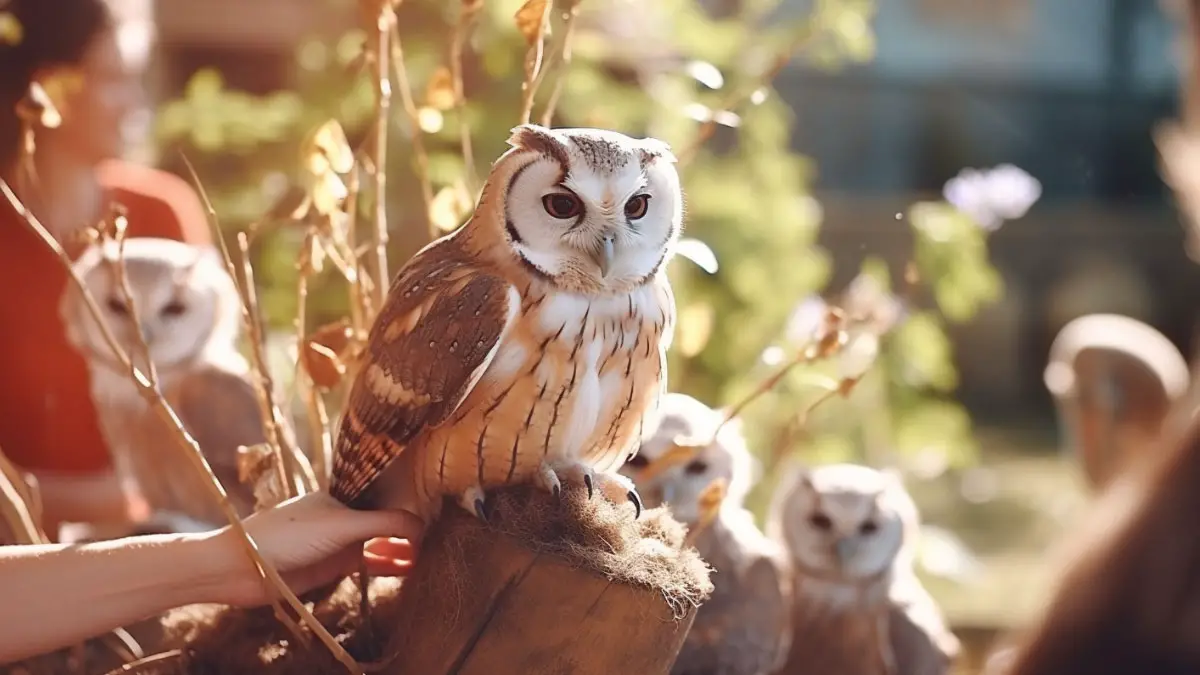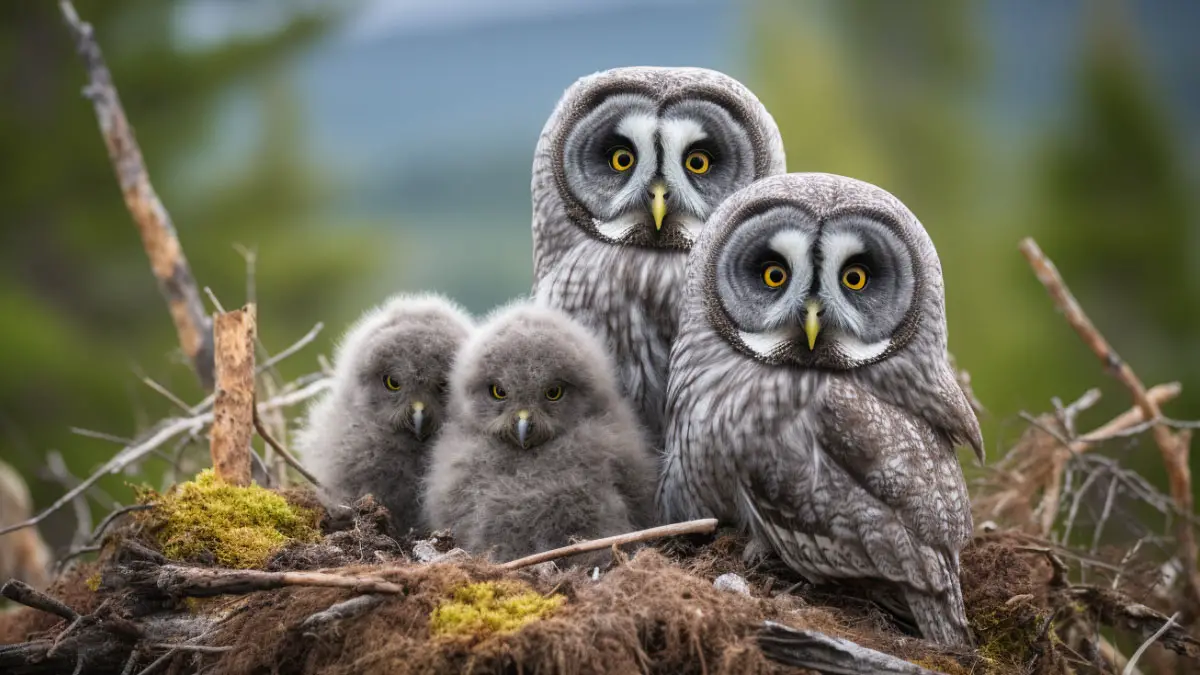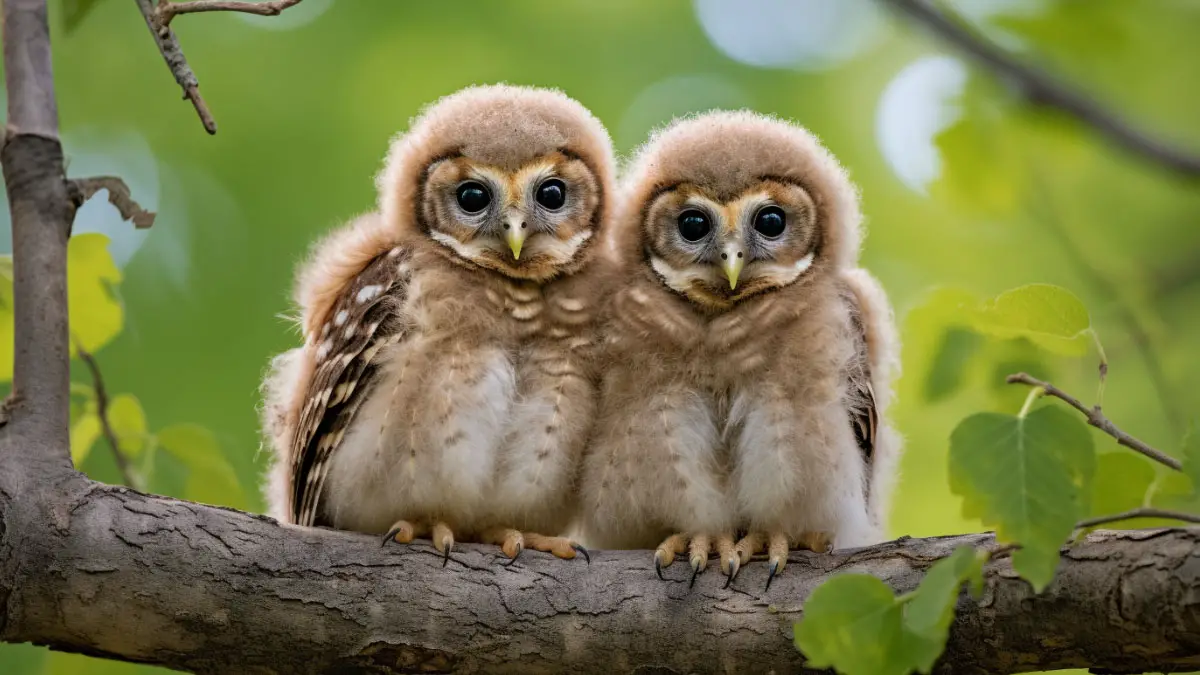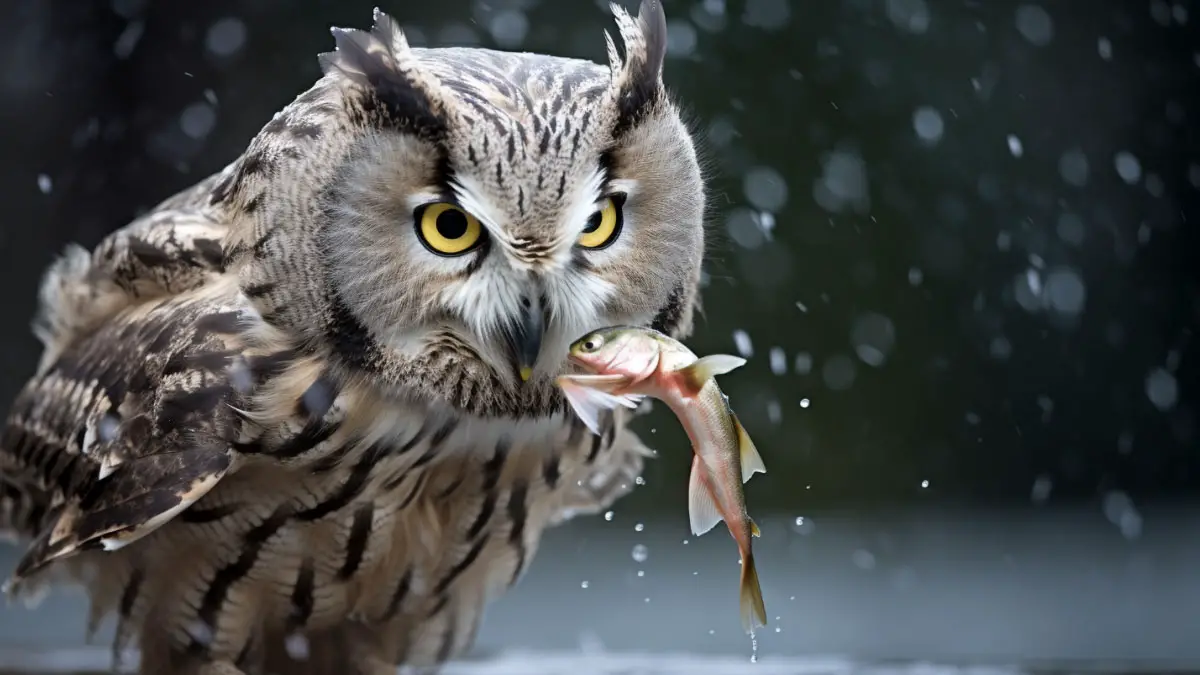Owls are fascinating creatures that have long captivated the human imagination. With their unique appearance and nocturnal habits, it’s no wonder that these birds have become symbols of wisdom and mystery.
So, what do owls eat? Primarily, they eat small mammals, birds, and insects. However, the diet can vary depending on the specific species of owl and the region they live. That is because some species are known to prey on snakes, frogs, and even small cats. Some species of owls have also been known to consume small amounts of plant matter, particularly fruit.
If you’re curious about the diet of these intriguing birds, you’re in the right place. In this article, we’ll cover everything you need to know about the foods that owls enjoy.
What Do Owls Eat: A Complete List of Foods Owl Eat
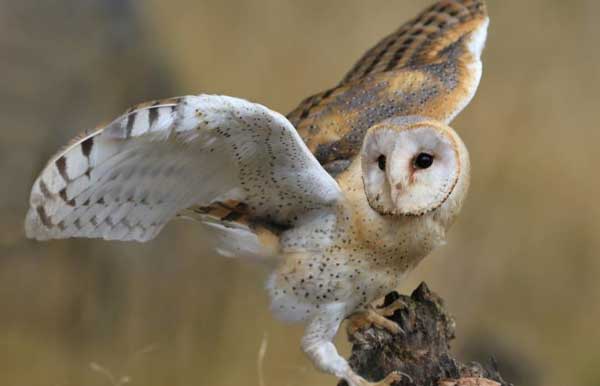
Before answering the question, have a look at all the common foods owls eat.
| Food Type | Common Prey |
| Small Mammals | Mice, rats, voles, rabbits, squirrels, shrews, moles |
| Birds | Small birds, such as sparrows and finches |
| Insects | Beetles, moths, grasshoppers, crickets |
| Reptiles | Snakes, including venomous species |
| Amphibians | Frogs |
| Fruits | occasionally; especially when other prey is scarce |
What Do Owls Eat? A Detail Overview of Owls’ Food
Owls are predominantly meat eaters because they are carnivorous birds. But depending on the particular species of owl and the area they reside in, their diet might change. Some common prey for them to eat include snakes, mice, rats, voles, rabbits, squirrels, birds, and insects.
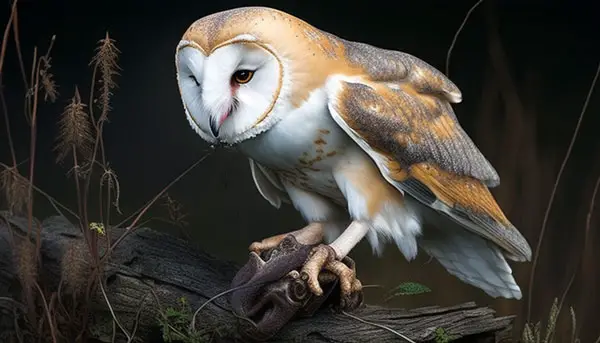
Some species of owls, such as barn owls, are also known to eat small mammals like shrews and moles. In general, they tend to prey on animals readily available in their habitat.
Some other species of owls, particularly those that reside in forested environments, feed on squirrels. They are well-equipped for squirrel hunting, having keen talons and exceptional eyesight that allows them to locate their prey from afar.
Rabbits are another favorite meal of owls, and these birds may frequently be observed hunting and eating rabbits in open fields and meadows. With strong wings and keen talons that allow them to chase their prey over great distances, owls are well-adapted to hunting rabbits.
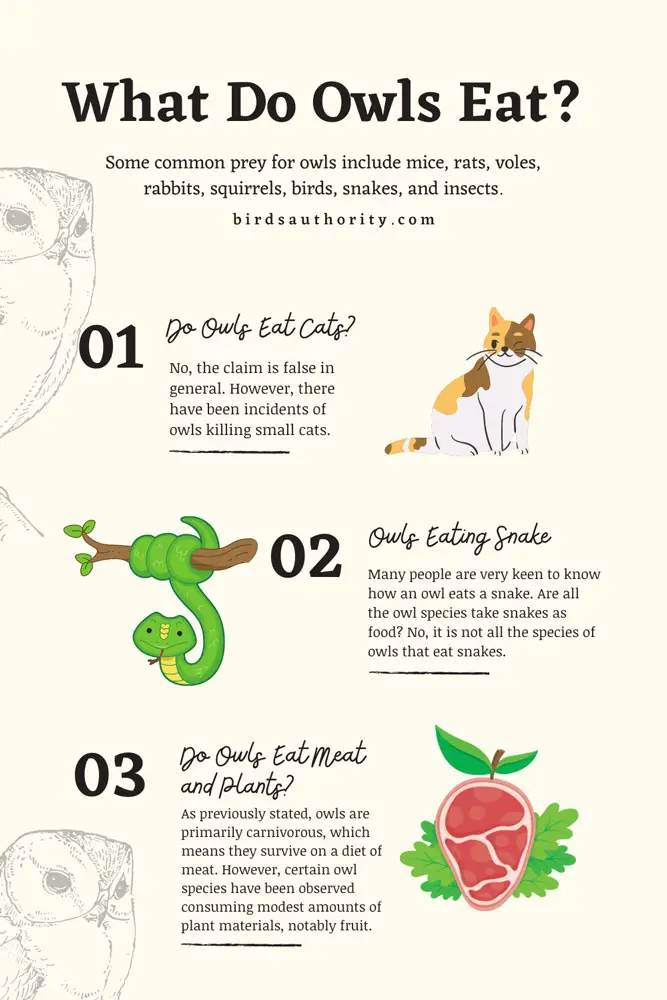
Likewise, frogs are a sporadic food source for owls, especially those that reside near bodies of water. So owls are opportunistic predators that will feed on any available food, even frogs. While frogs may not constitute a significant portion of an owl’s diet, they can be a useful source of nutrition and energy.
Do Owls Eat Cats?
No, the claim is false in general. However, there have been incidents of owls killing small cats. That happened especially in metropolitan environments where the owls may be attracted to feed on the plentiful rodent populations.
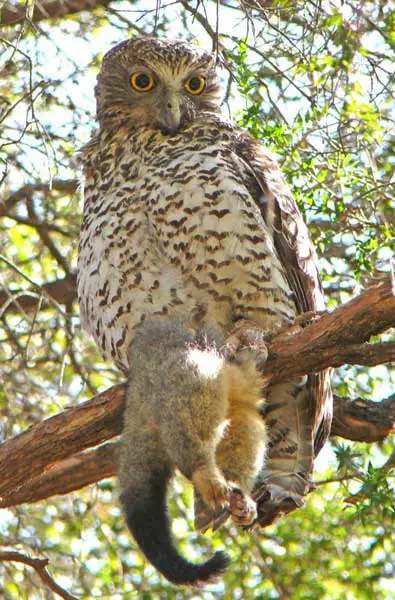
Yet, these events are uncommon, and it is crucial to highlight that owls do not pose a threat to domestic cats in general. Many people regard owls as a valuable ally in suppressing rodent populations. This may be a problem for homeowners.
Owls Eating Snake
Many people are very keen to know how an owl eats a snake. Are all the owl species take snakes as food? No, it is not all the species of owls that eat snakes. It is some species, to be precise.
Some species of owls, such as the barn owl, are known to prey on snakes. They can discover and trap snakes thanks to their strong sense of hearing, which allows them to find their prey even while it is underground.
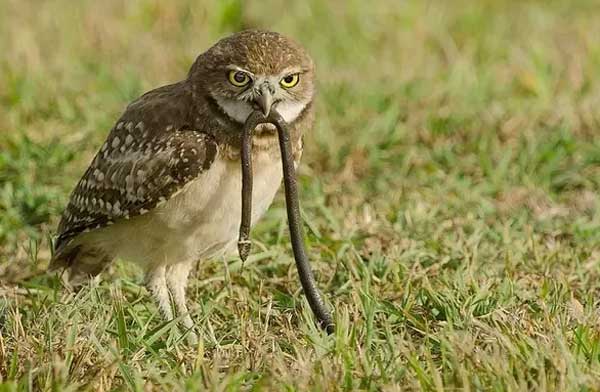
These birds have been observed hunting and eating both venomous and non-venomous snakes. That includes rat snakes, garter snakes, and even rattlesnakes.
Do Owls Eat Meat and Plants?
As previously stated, owls are primarily carnivorous, which means they survive on a diet of meat. However, certain owl species have been observed consuming modest amounts of plant materials, notably fruit.
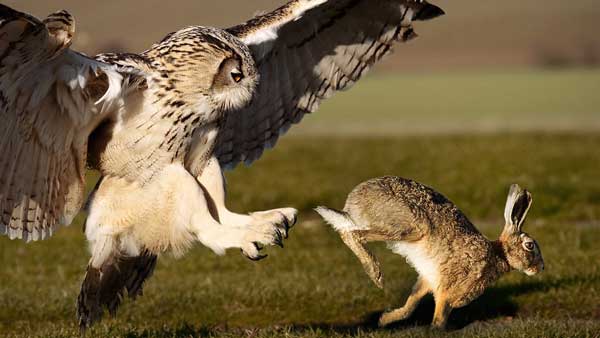
For example, Burrowing. It is a very cute owl and is known to occasionally eat seeds and fruit in addition to its usual diet of insects and small mammals. Anyway, the majority of an owl’s diet consists of animal protein.
What Is The Food Chain Of An Owl?
An owl’s food chain is the process by which energy and nutrients are transferred from one creature to another in an ecosystem. Owls are at the top of the food chain in their respective environments, which implies that no other species feed on them. Instead, they hunt smaller animals for nourishment.
Owls are predatory species in the food chain, which means that they hunt and kill other animals for sustenance. Common prey for them includes all insects, mice, rats, voles, rabbits, squirrels, birds, and snakes. The precise prey on which an owl eats varies based on the species and location in which it dwells.
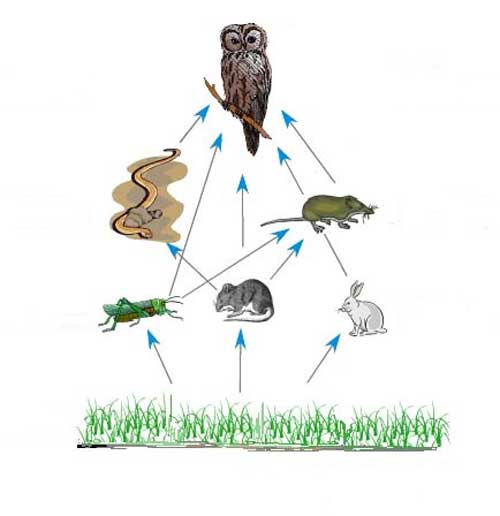
In consequence, owls play an important role in the food chain by helping to regulate the numbers of smaller animals. This serves to preserve environmental balance and prevents any one species from becoming overly prevalent.
However, owls are also vulnerable to being preyed upon by larger animals, such as hawks and eagles, particularly when food is scarce.
Owl’s Diet Habit: Some Other Facts
Other facts include why an owl eats both meat and vegetables. Why do their diets differ from place to region, and how environmentally friendly are their eating habits? The solution is presented below, along with some rationale.
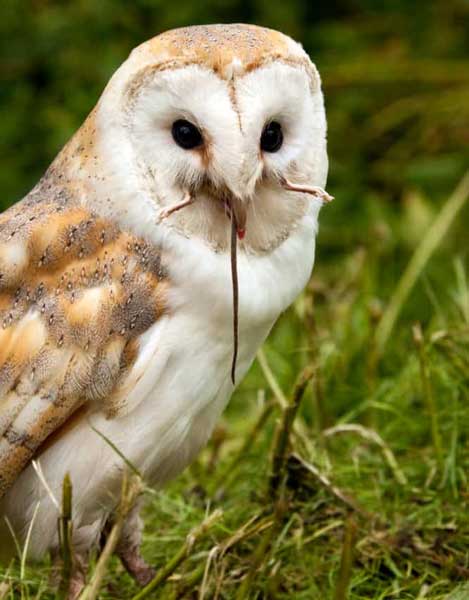
Does Owl’s Beak help their Diet to be various?
Owls have powerful talons and sharp beaks that allow them to capture and kill their prey with ease. They are skilled hunters that can locate and capture their prey using their keen senses of sight, hearing, and smell.
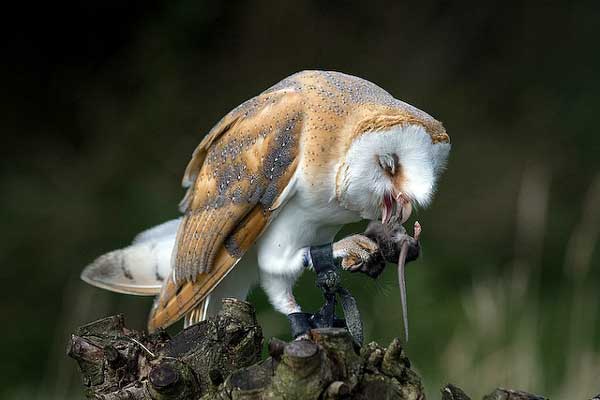
As a result, some of the owls consume plants, and vegetables. And some other species like hunting small animals. However, eating meat is common to all of them.
Owl’s diet Depends on Opportunity
Owls are opportunistic hunters that will prey on whatever small animals are most readily available in their habitat. This means that their diet can vary widely depending on the region in which they live.
Owl’s Food Habit Benefits Ecosystem
Owls are a vital part of the food chain in their respective ecosystems, and they play a critical role in controlling the populations of small animals. This helps to maintain a balance within the ecosystem and prevent any one species from becoming too abundant.
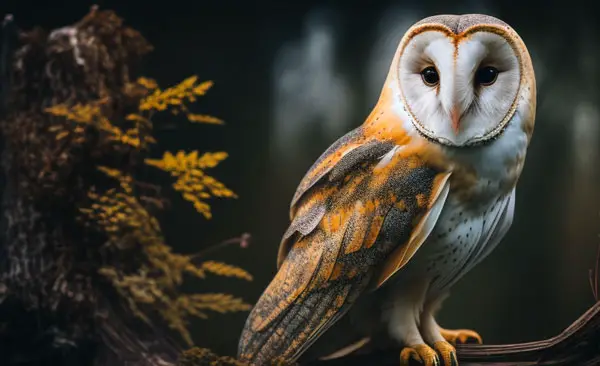
FAQs
You might have some questions regarding all these things discussed above. Here we will shortly answer some of the most asked questions regarding owls and their food habit.
Owls frequently consume predators, including weasels, bats, shrews, and insect-eating birds. As a consequence, owls are at the top of the food chain.
There are no true preferred foods of owls because diets vary from species to species. Scops and Screech Owls mostly consume insects, but Barn Owls primarily consume mice, shrews, and voles.
First and foremost, owls are not pets. It is doubtful that it will accept people. However, there are occasional exceptions, and owls may tolerate humans depending on the conditions.
Conclusion
So, what owls eat in general are small mammals, birds, and insects. Also, in some specific circumstances, reptiles such as snakes. But that is not the end of the list. Some owls might consume fruits and frogs, that is to depend on the circumstances.
Overall, sometimes their physic, sharp beaks are also affected their food habits as they can hunt and consume fruit too. Besides, some owls are opportunistic hunters, the thing represents why an owl’s diet varies depending on the environment.
